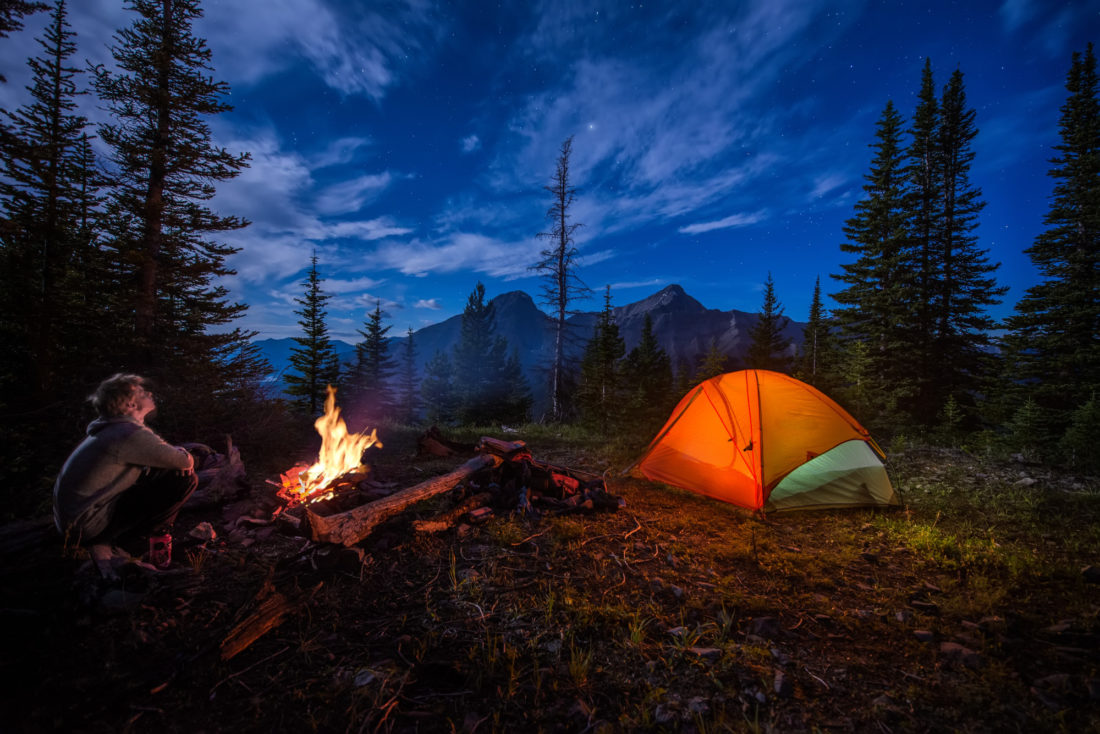Camping Necessities for Fun and Safe Outdoor Adventures

The worst feeling is arriving at your campsite and realizing you’ve forgotten something. It happens to even the most experienced campers, and it can turn a great camping trip into a real challenge. Nobody wants to be caught in the woods without everything they need!
Every camper will benefit from putting together a list of camping necessities. Depending upon where you are camping some of these might not be necessary. If you prefer camping in style, give Colorado glamping a try by staying in a luxury cabin. If roughing it in a tent is more your style, here are some items that should always appear on your list.
Table of Contents
Water/Water Purifier
Water should be one of the first things you pack for a camping trip. If you think you’ve packed enough water, pack a little more. You can really never have enough water.
Most campsites have water available, but you can never be sure of the quality. If you’re backwoods camping, water is doubly important. The last thing you want to do is take a risk and drink from a stream or a lake.
Whether you bring water bottles or jugs, just make sure to pack plenty. You can also get water bricks, which are easy to stack and carry a good amount of liquid.
There are plenty of devices on the market today that allow you to make dirty water drinkable. These can be a bit pricy, but they can also be true lifesavers. You can get water bottles that do this directly, and straws that you can put into a stream and drink directly out of.
Pocket Knife
You should always pack the best pocket knife possible when going out on a camping trip.
For many people, a good Swiss Army Knife will do the trick. That way you’ve got plenty of tools for any type of situation. A good Swiss Army Knife should include a screwdriver, mini saw, pliers, and of course a strong blade.
If you want something a little stronger, try a tactical or hunting knife. These are sharp and durable, and usually have a small section of saw teeth along the blade. This makes them perfect for survival situations.
You never know what can go on while camping. A knife can be a lifesaving tool in plenty of situations, from animal attacks to fire starting. You don’t want to forget it.
Matches
Lighters are great and all, but they don’t last.
Matches are easy to ignite and hassle-free. You can even get storm-proof matches, and weather-proof containers to hold them in. With these, you don’t have to worry about ruining your matches in the rain!
You should also bring a small flint firestarter, and learn how to use it. This will give you an unlimited source of fire that you don’t have to worry about.
First Aid Kit
You probably won’t need it, but you should always carry a first aid kit anyways.
Sustaining an injury while camping can be a scary and life-threatening experience. The deeper into the woods you are, the worse the situation. If this happens to you, you’ll be glad you brought your first aid kit.
A good first aid kit includes:
- Gauze & bandages
- Soap
- Antiseptic ointment/Antibiotic cream
- Tylenol, anti-inflammatory, and indigestion medication
- Sunscreen & bug spray
- Emergency whistle
- Burn Ointment
- Heat/Cold Pack
The more you can fit into a backpack-sized first aid kit, the better. You might also consider having a larger first aid kit for the campsite, and a smaller one for hiking. You never know when you might need it.
Tent & Sleeping Bags
This one is pretty obvious, but it’s also the most important set of items to bring camping. Always double-check to make sure you have your tent and sleeping bag. Make sure you’ve got all the necessary poles, pegs, and tools to get it set up.
Backup poles and pegs are never a bad idea, either. It’s not uncommon to unzip your tent and find something broken, especially if you haven’t camped in a while. You should also lay your tent out before packing it and check for any mold or tears in the material.
You might also want to pack a camping chair, and even a hammock if you want to relax to the max. Sitting on the ground is bad for the back, and a picnic table isn’t always provided by campsites. The best camping chairs are durable, come cup-holder equipped, and fold up to a manageable size.
Light
A flashlight is an invaluable tool for any camper.
If you get stranded in the woods at night or have to set up your tent in the dark, you’ll need some sort of light. You can get an electric lantern, a headlight, or just a classic flashlight. Don’t hesitate to bring a backup, too.
Every smartphone on earth has a flashlight, but you shouldn’t rely on it. Your phone will probably die at some point on your camping trip, and you may not be able to charge it. You can bring a charging bank, but that still isn’t as reliable as a good flashlight with fresh batteries.
Rain Coat/Tarps
The weather can turn at any second.
Even if the forecast reads sunny, you want to be ready for unexpected rain. Ideally, you’ll want something lightweight that will fit in a bag. That way you can keep it on you at all times.
When shopping for raincoats, make sure your choice is waterproof rather than water-resistant. Waterproof coats will keep you much drier.
You should also carry a large tarp or two for your tent. A lot of tents don’t do so well in the rain. With a tarp, you can simply set it up above your tent on a slant and the rain won’t touch it.
Toiletries
Even if your campsite has bathrooms you should bring basic toiletries. These include toilet paper, toothbrush, and toothpaste, and soap and shampoo. Hygiene doesn’t go out the window just because you’re in the wild!
Toiletries are especially important if you’re doing some more remote camping. In this case, you might even want to take a camping toilet. It sure beats holding it!
Camping Stove/Cooking Supplies
If there’s no campfire on-site, a camping stove is absolutely necessary. Even if there is a campfire, the weather might prevent you from starting one. This can happen from dry conditions or too much rain.
If you’re packing a camping stove you’ll also need propane and cooking tools. Some of these might include:
- Spatula
- Pot/Pan
- Fork, Knife, Spoon
- Oven mitt
- Washbasin, dish soap
- Cloth
Of course, you’re also going to need some food to cook on your stove. So let’s dive into that.
A Cooler & Food
You don’t want to bring anything too labor-intensive when packing food for a camping trip. You’re not going to a dinner party, after all.
Some camping classics include hot dogs, canned goods, sandwich materials, and pasta. With a good cooler to keep your food fresh, you can bring just about anything you want that’ll go on the stove. Consider frozen burgers, Jiffy Pop, and even steak for the true camping gourmand!
Plan out what you’re going to be eating every day and stick to it. Bringing too much food means spoils, and bringing too little means hunger. When packing food, you need to plan as exactly as possible.
You should also pack trash bags for any waste you might produce. Leaving food scraps around a campsite is dangerous, as it can attract animals. It’s also just plain inconsiderate to leave trash behind!
Warm Clothes & Blankets
The woods can get pretty cold at night. Even a beginner camper knows how cold waking up in a tent can be!
You want to pack as many warm layers as you can. Take a few extra blankets, and some extra sweaters to put on under your jacket. If you’ve only got a basic sleeping bag, you’ll want to wrap yourself extra well at night.
Survival Essentials
Every camper should take an ample supply of rope or paracord. You can use it to tie tarps, make a clothesline, and keep your food up high if there’s a possibility of bears.
Navigation equipment is important, too. You really shouldn’t rely on your phone for anything. This includes maps, a compass, and a radio at the very least.
Backwoods campers may even consider flares in case they get lost.
A small hatchet or ax will come in handy if you need to chop firewood. A hammer might also help in setting up the tent and getting your ax through especially tough wood.
Never Leave the Driveway Without These Camping Necessities
When packing for a camping trip, follow the Santa Claus method: make a list and check it twice. Consider everything you’ll absolutely need and everything you just might need. Even if the chances of ending up in an emergency are low, it’s better to be prepared for all situations.
Consider all the camping necessities above, and pack anything else you might think is essential. Chances are if you think of it, it’s essential.
For more on entertainment, travel, and beyond, check out the rest of our blog. Contact us with any comments or questions.









